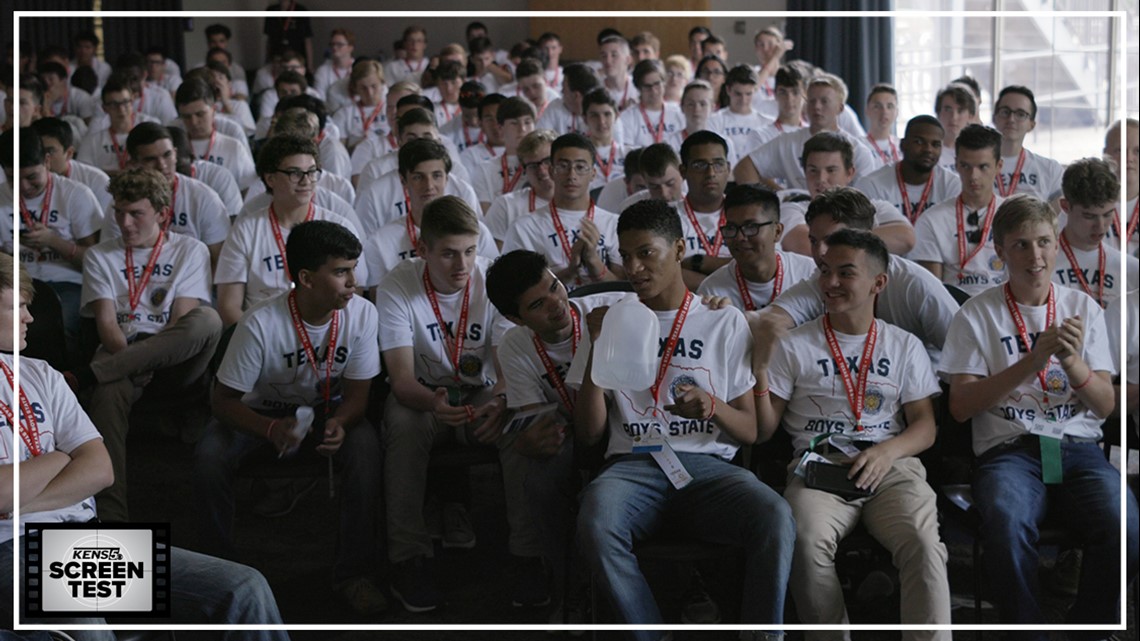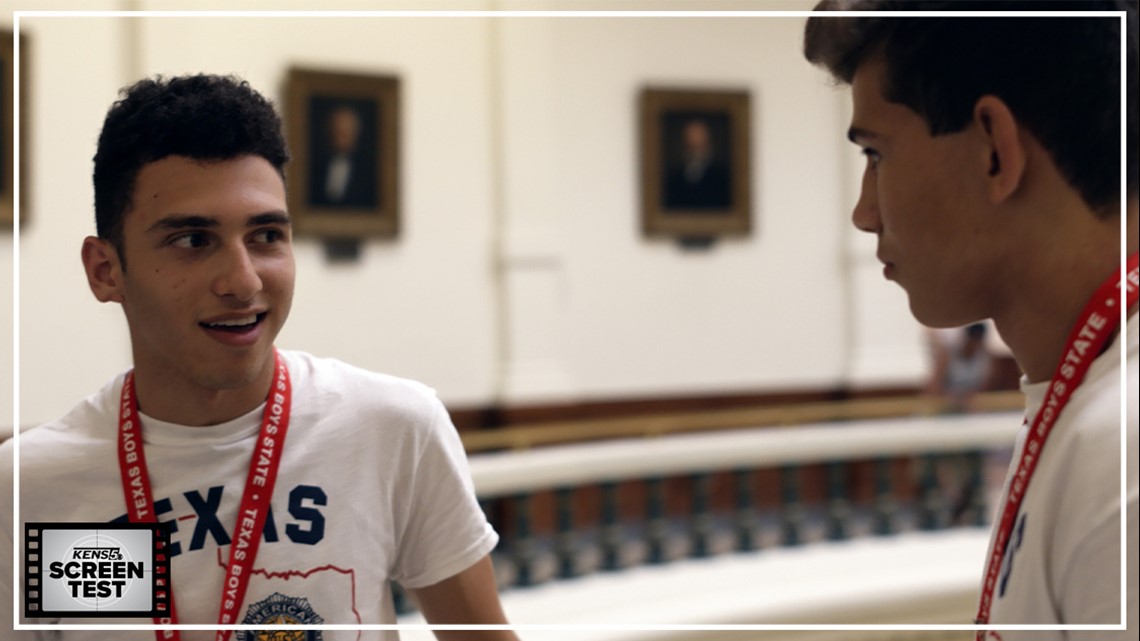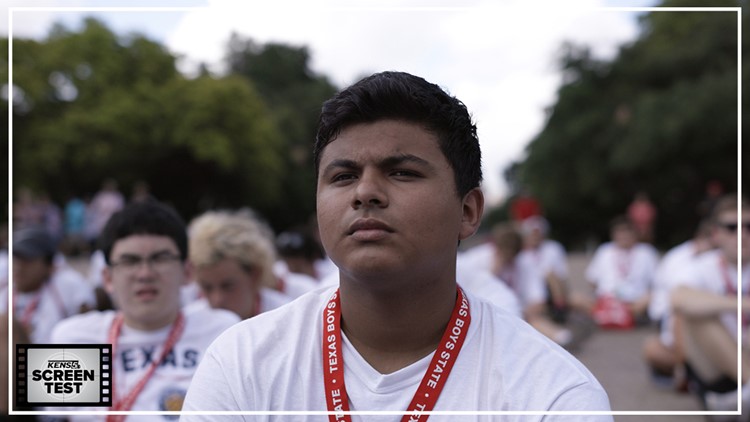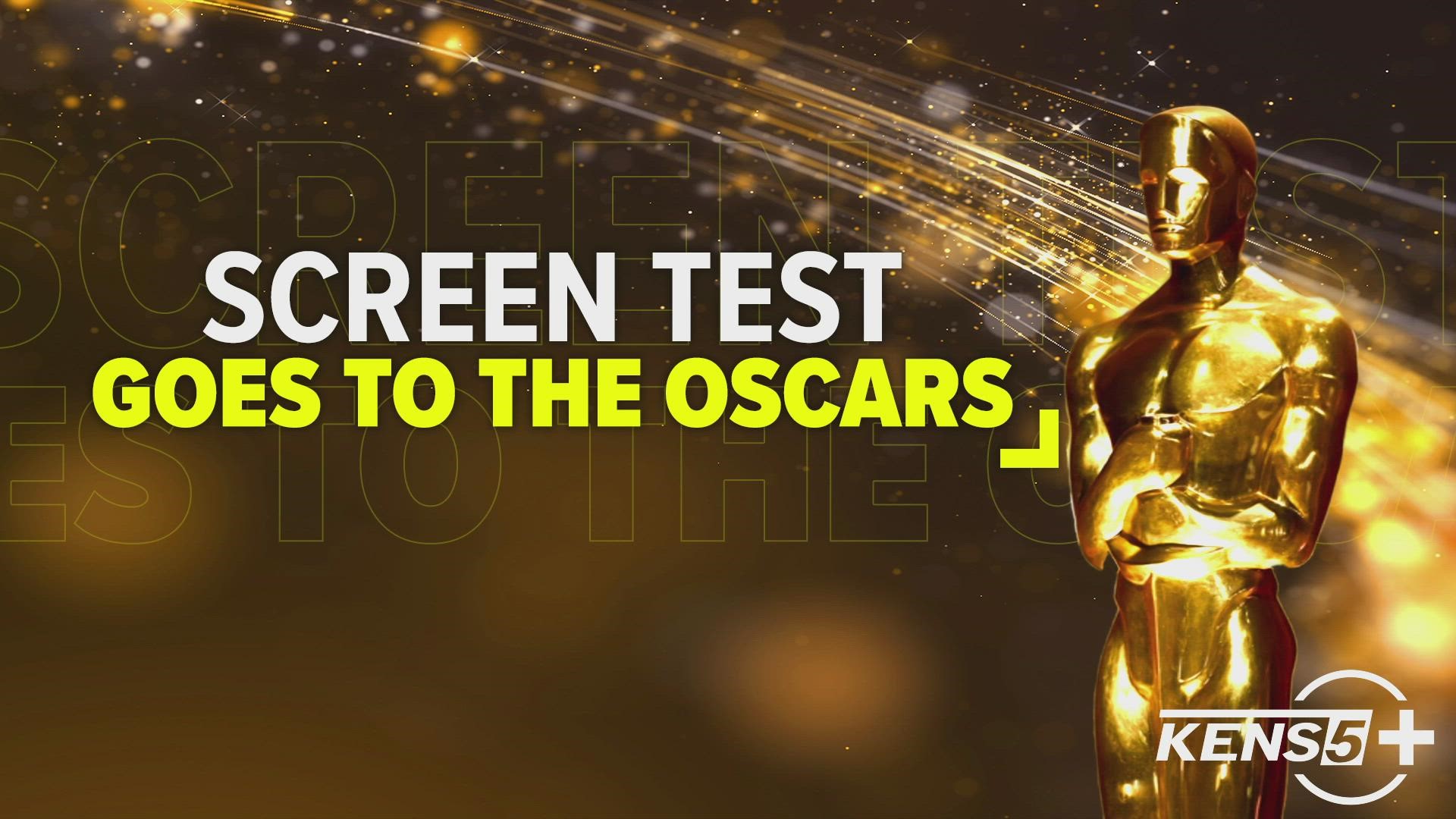“Our masculinity shall not be infringed!” So proclaims a teenaged, blonde-haired boy to roaring applause in “Boys State,” and you’d be forgiven if the moment gives you whiplash, along with tinges of awe, amazement and uneasy skepticism. We can imagine another much more well-known blonde-haired politician a few decades his senior saying the same thing as he walks through the White House
For an annual conference of passionate junior politicos which can call prominent bureaucrats like Dick Cheney and Cory Booker alums, there’s little explicit talk of future aspirations in “Boys State,” a marvelous Sundance award-winning documentary that hits Apple TV+ Friday. The opening minutes see a Ronald Reagan action figure being proudly shown off, but Donald Trump’s name is mentioned two, maybe three times. “Washington” is heard even more scarcely.
That’s all by design in this enthralling and thoroughly engaging documentary, about a group of high school Texas boys who converge on Austin into create their own mock government. The film, shot in the summer of 2018 by co-directors Amanda McBaine and Jesse Moss, is a masterclass of implication, and bursts with relevant dot-connecting about the flaws in our modern democratic systems—even when the doc begins to suggest that they’re not flaws so much as tenets. The teenagers’ week-long crash course in gubernatorial process becomes our microscope into backdoor political maneuvering and front-stage bickering.
Things get underway when a thousand Texas boys are selected from a pool of applicants to meet at the heart of the state. Most are along for the ride, the education, the fraternity. A few have their sights on legacy. And as soon as the 1,000 are separated into the Federalists and the Nationalists, those few are off collecting signatures and planning compressed campaigns for attorney, party chairman, governor.


It’s a small wonder we haven’t gotten a documentary on the Boys State program until now; its simple structure makes for fascinating real-life setup. But it’s the lightning-quick pace, delightfully cheeky tone and early reliance on visual details (a clutched Bible, a Beto shirt, an offhand confession from one boy that, OK, perhaps Barack Obama did do “one or two things to help this country”) that get us invested from the jump. Party platforms are built, signatures are collected and battle lines are formed, with ostensibly nothing at stake but winning on Election Day. And maybe snagging a scholarship too.
But these young fellas – most of them white, most of them with conservative red running in their veins – are less Tracy Flick and more Frank Underwood, eager to upstage the competition, flaunt their personalities and spur in-party feuding via anonymous Instagram campaigning rather than debate issues of substance that will (ahem, should) secure votes.
“Boys State provides a chance to hear the other side,” we hear early on. Innocent enough. But as sure as POTUS will take to Twitter upon waking tomorrow morning, Boys State will also provide a chance to wag an accusatory finger as some of its participants begin to shape a reputation from gleeful destruction of formality. There are cheers and handshakes, but even more jeers, boos and several “Please clap” moments too. “Boys State” is stuffed with scenes where the viewer’s laugh will quickly be followed by a moment of deep concern. It’s rowdy, unruly, a bit silly and a bit dangerous. This is politics, after all.
But this is also movie that affirms the views of the optimists among us just as much as the suspicions of the cynic, which makes it easy to single out the quiet-spoken Steven and perfectly decent René early in the week. The deeply rooted convictions of both speak to their steadfast, comparatively intelligent approach as much as their backgrounds do—Steven is a Hispanic whose mother was an undocumented immigrant, René is a young Black man with precise affect and a considerable awareness of his social position. They’re here because they believe in the impact politics can have not just on a family name, but on a nation. Elsewhere, a fellow Nationalist who looks uncannily like Tim Riggins’s cousin thinks he’s got the charisma to rise up the party ranks, but his utter lack of minute-to-minute know-how places unfortunate emphasis on the “mock” in “mock government.”
The Federalists have their own power players. Ben uses his experience having grown up without both of his legs and a malformed right arm to paint himself as someone who can endure a challenge. The tactics he uses to will his party to victory are questionable at best, but it’s also impossible to imagine that a seasoned Washington politician doesn’t also repeatedly use the phrase “shock and awe” to refer to an election beatdown. Ben’s champion for governor, meanwhile, is a Ben Shapiro-lite teen with a penchant for talking voters’ ears off into persuading them to side with him.
Pay close attention whenever any of these boys are sharing the same room—McBaine and Moss know the power of a simple reaction shot, and here they’ve garnered a wealth of them that are as dramatic as anything in “House of Cards.” An exhilaration settles in once you realize these teens – some more egotistically self-defeating than others, some craftier than others, all of them captivating – aren’t holding back with the cameras nearby. And the filmmakers take advantage of that freedom to the fullest extent. No moment, no remark, no look is included here by mistake. Every one has a double-meaning, a way of connecting mock and serious, real and unreal—because it’s all very much real. This is just as much about the politics of the present and past as it is about the politics of the future. This government will make no new laws, but you’d be mistaken to think what you’re seeing isn’t consequential.
If the half-dozen or so boys that “Boys State” closely follows are the documentary’s subjects, though, so too is the massive herd of hundreds of other high school-age teens filling mock debate halls and Austin sidewalks – sometimes in what feels like a fraternity initiation event – who hold the means to confirms aspirations or dash them. Each wears the same white, event-official T-shirt, lending a pungent air of unconfronted awkwardness that lingers throughout, and not in the least because there isn’t an XX chromosome pairing in sight (the movie explains early on that there is, in fact, a separate Girls State program. I eagerly await that documentary). That dystopian sensation is all the more appropriate given the movie starts off with an explanation of the philosophical differences between Aldous Huxley and George Orwell.
“Boys State” is also expertly cut together. Never less than energetic, we seemingly never spend more than 60, maybe 90 seconds with a given boy before moving right along to see how things are doing for someone else. That the roughly 110 minutes here fly by is a testament to the filmmakers duplicating how fast a week of campaigning and backstabbing flies by for these participants. We feel their exhaustion when their slumped over on the couch the morning of Election Day.


This could very easily have been a documentary that pummeled us (with shock and awe) with the obvious parallels; most versions of “Boys State” would follow up a look of disdain in Austin’s capital with one from a veteran politician at the national one. But if its success is its expert construction, its triumph is how you’ll feel a unique cocktail of emotions in any given scene: Disbelief, amusement, horror, satisfaction, disappointment, bewilderment among them. “Boys State” is a cinematic spectrum of real-world machinations, a documentary that illuminates as much as it confirms while exploring the question: What is democracy? Or, rather: What is democracy, really?
One of the documentary’s most insightful moments is when a Nationalist admits the Boys State experience “gave me a new appreciation for why politicians lie to get into office.” The reflection is offered so naturally that it’s no use wondering if they’re in on the joke they’re not trying to make, the kind of joke that’s prevalent in national politics. The underlying bulletproof sincerity – a sincerity that for this one week makes victors of buffoons while it uplifts our faith that one person can still change a mind and change a world – is the punchline. And also a warning.
"Boys State" is rated PG-13 for some strong language and thematic elements. It's streaming on Apple TV+ now.
Directed by Amanda McBaine and Jesse Moss
2020
OTHER SCREEN TEST REVIEWS
- ‘Sputnik’ Review: Spunky and smart creature feature makes for a tantalizing feature debut
- SA Film Fest Review: Straightforward doc ‘My Father’s Brothers’ gives short shrift to a harrowing Vietnam War story
- SA Film Fest Review: A convict and boy bond in the overly predictable drama ‘The Good Wolf’
- 'Canción Sin Nombre' Review: Haunting drama zeroes in on the no man's land of political revolution
- ‘She Dies Tomorrow’ Review: An unnerving study of primal reckoning
- 'Radioactive' Review: An actively frustrating biopic
- ‘The Old Guard’ Review: Netflix’s comic book action-drama is a character study that shows what we’ve been missing



